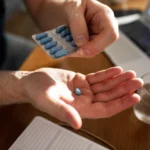Key Takeaways
- Partial Hospitalization Programs (PHP) offer more intensive treatment compared to Intensive Outpatient Programs (IOP), with daily sessions lasting 4 to 6 hours, making them suitable for individuals needing a higher level of support.
- IOPs provide flexible treatment schedules requiring less time commitment, typically involving 12 to 15 hours of therapy weekly, allowing participants to continue daily responsibilities while receiving care.
- The choice between PHP and IOP depends on various factors such as the severity of the mental health condition, availability of support systems, and individual daily responsibilities, making personalized assessment essential.
Understanding Partial Hospitalization Programs (PHP)
Partial Hospitalization Programs (PHP) provide intensive outpatient treatment for serious mental health issues without requiring overnight stays. These programs focus on mental health stability and recovery in a structured environment. Participants typically spend 5 to 6 hours a day in treatment sessions, 5-7 days a week, enabling them to maintain daily responsibilities while receiving care. PHP sessions generally last between 4 to 6 hours, tailored to individual needs.
PHP is more intensive than standard outpatient therapy, offering a comprehensive and structured mental health care approach. It bridges the gap between inpatient treatment and outpatient therapy, providing higher support and supervision without hospitalization.
PHPs are ideal for those needing intensive treatment while living at home and maintaining daily routines.
What is PHP?
Partial Hospitalization Programs (PHP) provide therapeutic treatment for individuals who need more than outpatient care but less than inpatient care. PHPs provide comprehensive, intensive programs with structure, support, and close supervision. They emphasize medical and psychiatric care in a highly structured environment, involving a team of psychiatrists, psychologists, social workers, and other professionals.
Clients typically engage in therapy sessions lasting 4 to 6 hours daily, attending 5 to 7 days a week, and committing at least 25 hours weekly. The duration of a PHP can range from a few weeks to a few months, depending on individual needs and progress.
PHP visits are longer and more frequent compared to standard outpatient programs, making them a more intensive treatment program option for those requiring significant support.
Who Benefits from PHP?
Individuals transitioning from inpatient care or needing more intensive support may find PHP the right choice. PHP benefits those requiring a higher level of treatment and structure, and individuals with limited support networks needing intensive care.
PHP offers a structured and supportive environment that helps individuals achieve mental health stability and recovery while maintaining their daily responsibilities.
Exploring Intensive Outpatient Programs (IOP)
Intensive Outpatient Programs (IOP) offer treatment without 24-hour supervision, allowing individuals to maintain daily responsibilities while receiving necessary mental health care. With a typical commitment of around 12 to 15 hours weekly, IOPs offer a flexible schedule, with daily sessions lasting 2 to 3 hours. IOPs include individual counseling, group therapy, and psychoeducation sessions to enhance coping skills, along with additional services such as relapse prevention planning, life skills training, and ongoing case management.
Facilities like Atlantic Behavioral Health offer therapy services without hospitalization. Recognized as an IOP Mental Health facility by the Massachusetts Department of Public Health, Atlantic Behavioral Health provides comprehensive, individualized mental health support. IOPs are an excellent option for those needing structured support while maintaining their daily routines and responsibilities.
What is IOP?
Intensive Outpatient Programs (IOP) offer structured outpatient treatment, allowing individuals to continue their daily responsibilities while receiving essential mental health care. Typically, IOPs have scheduled sessions 3 to 5 days a week, with each session lasting 3 to 4 hours, resulting in a total of 12 to 15 hours of treatment weekly. These programs offer services tailored to individual needs, such as individual therapy, group therapy, and medication management.
Key therapeutic components of IOP include psychoeducation, relapse prevention strategies, and an emphasis on group therapy for peer support. IOPs provide comprehensive treatment plans addressing specific needs, helping participants develop coping skills and manage their mental health effectively.
Who Benefits from IOP?
Individuals suitable for IOP often include those dealing with substance use disorders and mental health conditions like depression and anxiety. IOP is designed for individuals who have completed PHP or need less intensive treatment while still requiring support. Those who benefit from IOP are often individuals needing less intensive care than PHP but still requiring structured support to maintain their daily responsibilities.
A supportive home environment aids those in IOP, enabling them to follow their treatment independently. IOP offers greater flexibility for individuals. This allows them to attend treatment while still managing their daily routines and responsibilities.
Therapy sessions in IOP focus on identifying triggers, building coping mechanisms, and developing healthier lifestyle habits. For individuals with significant daily commitments, IOP allows for treatment flexibility while still managing personal responsibilities.
Key Differences Between PHP and IOP
Understanding the key differences between PHP and IOP is crucial for making an informed decision about the best treatment option. Partial Hospitalization Programs (PHP) often show more significant early progress due to their structured and intensive nature, while Intensive Outpatient Programs (IOP) focus on applying skills in real-world settings. PHP is generally more structured and can offer more comprehensive treatment options compared to IOP.
However, individuals in IOP can maintain their responsibilities while engaging in intensive therapeutic support. Both PHP and IOP have their unique advantages, and the choice between them depends on various factors, including the severity of the condition, the level of support needed, and the individual’s daily commitments.
Understanding these key differences helps individuals choose the treatment option that best aligns with their needs and recovery goals.
Treatment Intensity
PHP is more intensive than IOP, requiring daily participation and offering higher intensity treatment. Participants in PHP often engage in a more immersive treatment experience, focusing on intensive therapeutic activities. The higher level of intensity with longer treatment sessions is a characteristic of PHP, making it more appropriate for individuals needing intensive daily support and significant medical supervision.
In contrast, IOP provides structured outpatient treatment that allows individuals to maintain their daily responsibilities while receiving necessary mental health care. IOPs are less intensive than PHPs, with fewer hours of therapy each week, making them suitable for individuals who need support but can manage their responsibilities independently.
Structure and Supervision
PHP programs offer a higher level of supervision compared to IOP, providing more direct supervision and frequent medical oversight. IOP, on the other hand, involves less direct supervision and provides a less structured environment.
This difference in structure and supervision can significantly impact the choice between PHP and IOP, depending on the individual’s needs for support and oversight.
Time Commitment
Individuals in PHP typically commit to attending sessions 5-7 days a week, making it a more demanding schedule compared to IOP. PHP generally involves multiple daily sessions, requiring a significant time commitment.
In contrast, IOP sessions are usually held a few times a week for fewer hours, often lasting between 2-4 hours a day. Overall, PHP requires a greater time commitment than IOP due to its intensive schedule.
Therapeutic Approaches in PHP and IOP
Both PHP and IOP provide a wide range of services tailored to the specific needs of patients, including individual, group, and family therapy sessions. Common therapies used in these programs include Cognitive Behavioral Therapy (CBT), Dialectical Behavior Therapy (DBT), and family therapy, which are crucial for addressing mental health issues. Both PHP and IOP focus on teaching coping skills and strategies for relapse management, allowing individuals to apply what they learn in a supportive environment.
By utilizing evidence-based therapies and structured therapeutic activities, both PHP and IOP aim to help individuals develop coping skills, improve their mental health, and achieve long-term recovery. The choice between PHP and IOP depends on the individual’s specific needs and the level of support required.
Individual Therapy
Individual therapy in PHP and IOP helps clients address specific issues with a therapist. These sessions are crucial for tailoring treatment to each client’s personal challenges, allowing for a focused treatment approach that targets individual needs.
By working closely with a therapist, individuals can develop coping skills, address underlying issues, and make significant progress in their mental health journey.








